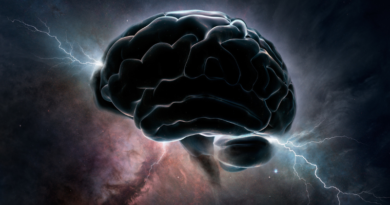The dynamic duo of your mind
(Bruce Lipton) The evolution of higher mammals, including chimps, cetaceans and humans, brought forth a new level of awareness called “self-consciousness,” or, simply, the conscious mind. The newer conscious mind is an important evolutionary advance. The earlier, subconscious mind is our “autopilot”; the conscious mind is our manual control.
For example, if a ball comes near your eye, the slower conscious mind may not have time to be aware of the threatening projectile. Yet the subconscious mind, which processes ~20,000,000 environmental stimuli per second vs. 40 environmental stimuli interpreted by the conscious mind in the same second, will cause the eye to blink. [Norretranders 1998] The subconscious mind, one of the most powerful information processors known, specifically observes both the surrounding world and the body’s internal awareness, reads the environmental cues and immediately engages previously acquired (learned) behaviors—all without the help, supervision or even awareness of the conscious mind.
The two minds make a dynamic duo
Operating together, the conscious mind can use its resources to focus on some specific point, such as the party you are going to tomorrow night. Simultaneously, your subconscious mind can be safely pushing the lawn mower around and successfully not cutting off your foot or running over the cat— even though you are not consciously paying attention to mowing the lawn.
The two minds (subconscious and conscious) also cooperate in acquiring very complex behaviors that can subsequently be unconsciously managed. Remember the first day you excitedly sat in the driver’s seat of a car, preparing to learn how to drive? The number of things that had to be dealt with by the conscious mind was staggering. While keeping your eyes on the road, you had to also watch the rear and side view mirrors, pay attention to the speedometer and other gauges, use two feet for the three pedals of a standard shift vehicle and try to be calm, cool and collected as you drove past observing peers. It took what seemed to be a long time before all these behaviors were “programmed” into your mind.
Today, you get in the car, turn the ignition on and consciously review your shopping list as the subconscious mind dutifully engages all the complex skills you need to successfully navigate through the city—without even once having to think about the mechanics of driving. I know I am not the only one out there who has experienced this. You are driving and having a delightful discussion with the passenger sitting next to you. In fact, your consciousness gets so caught up in the conversation, that somewhere down the road it dawns on you that you haven’t even paid attention to your driving for five minutes. After a momentary start, you realize that you are still on your side of the road and steadily moving along with the flow of traffic. A quick check of the rear view mirror reveals that you did not leave a wake of crumpled stop signs and smashed mailboxes. If you weren’t consciously driving the car during that time, then who was? The subconscious mind! And how well did it do? Although you didn’t observe its behavior, the subconscious mind apparently performed just as well as it was taught during your driver education experience.
Source: Bruce Lipton
You may also like:
Dr Bruce Lipton, Ph.D – Revolution of the evolution & emergence of cultural creatives




